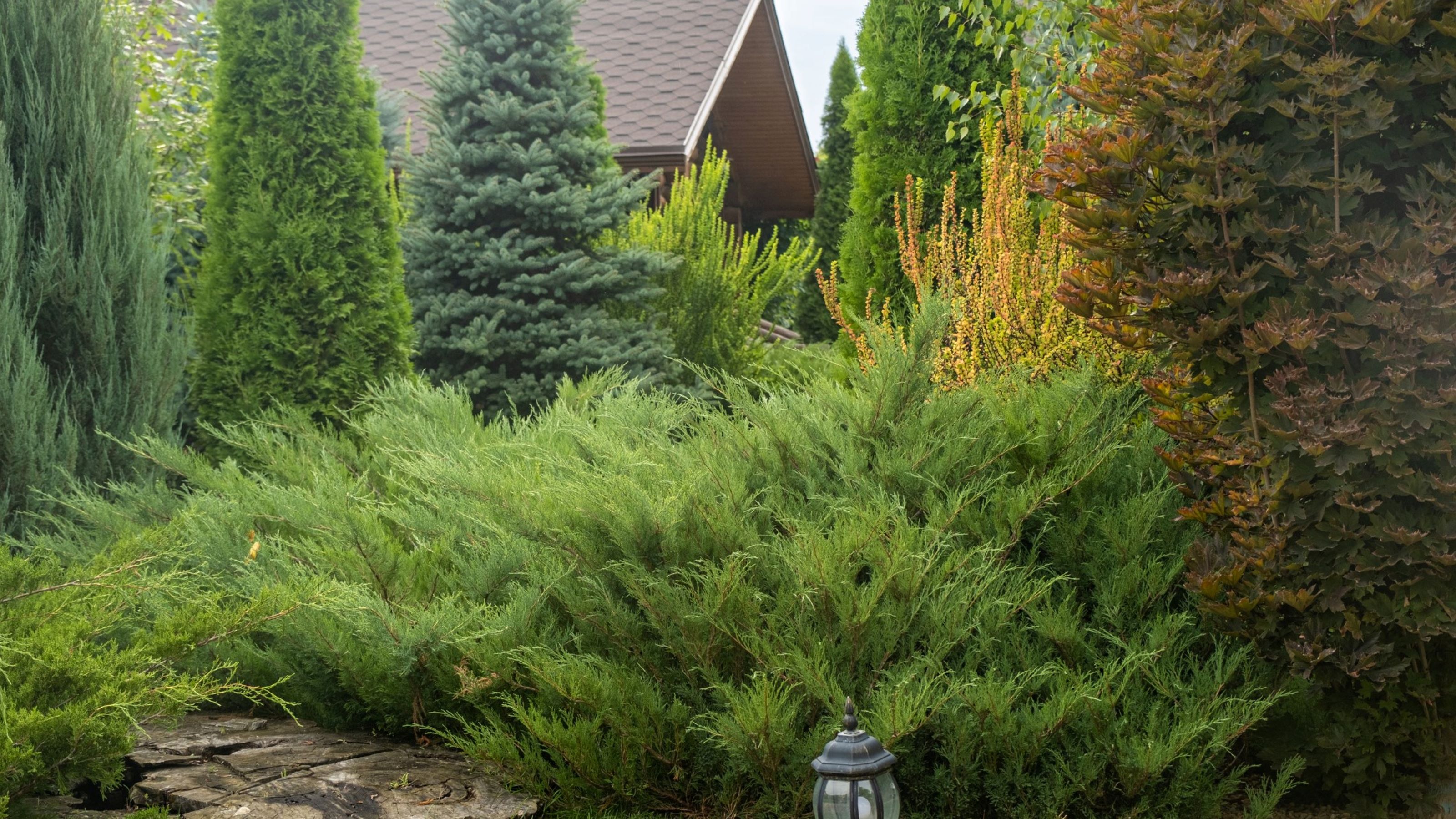
These top trees for privacy and shade are an asset in any exposed back or front yard. Not many of us are blessed with large yards that aren't overlooked and don't border any other properties. Some yards are exposed on multiple sides, too, which makes relaxing outdoors more difficult.
Then there's the question of shade. While some people like plenty of direct sun in their yard, most people prefer to have some protection from the bright lunchtime sun. While fencing is probably the most popular privacy idea for a yard, if you prefer a more natural landscaping scheme, trees offer a great solution.
When choosing a tree for your yard with privacy and shade in mind, you'll want a species with dense foliage and closely interwoven branches. Depending on how much coverage you want, you can choose trees that are so densely packed with foliage that they will block out most of the light. Other varieties will give you a more dappled shade effect.
Other than that, your choice will depend on your personal preference for your backyard. We've put together a list of trees that all look quite different and help create slightly different looks for your outdoor space.
1. Thuja Green Giant
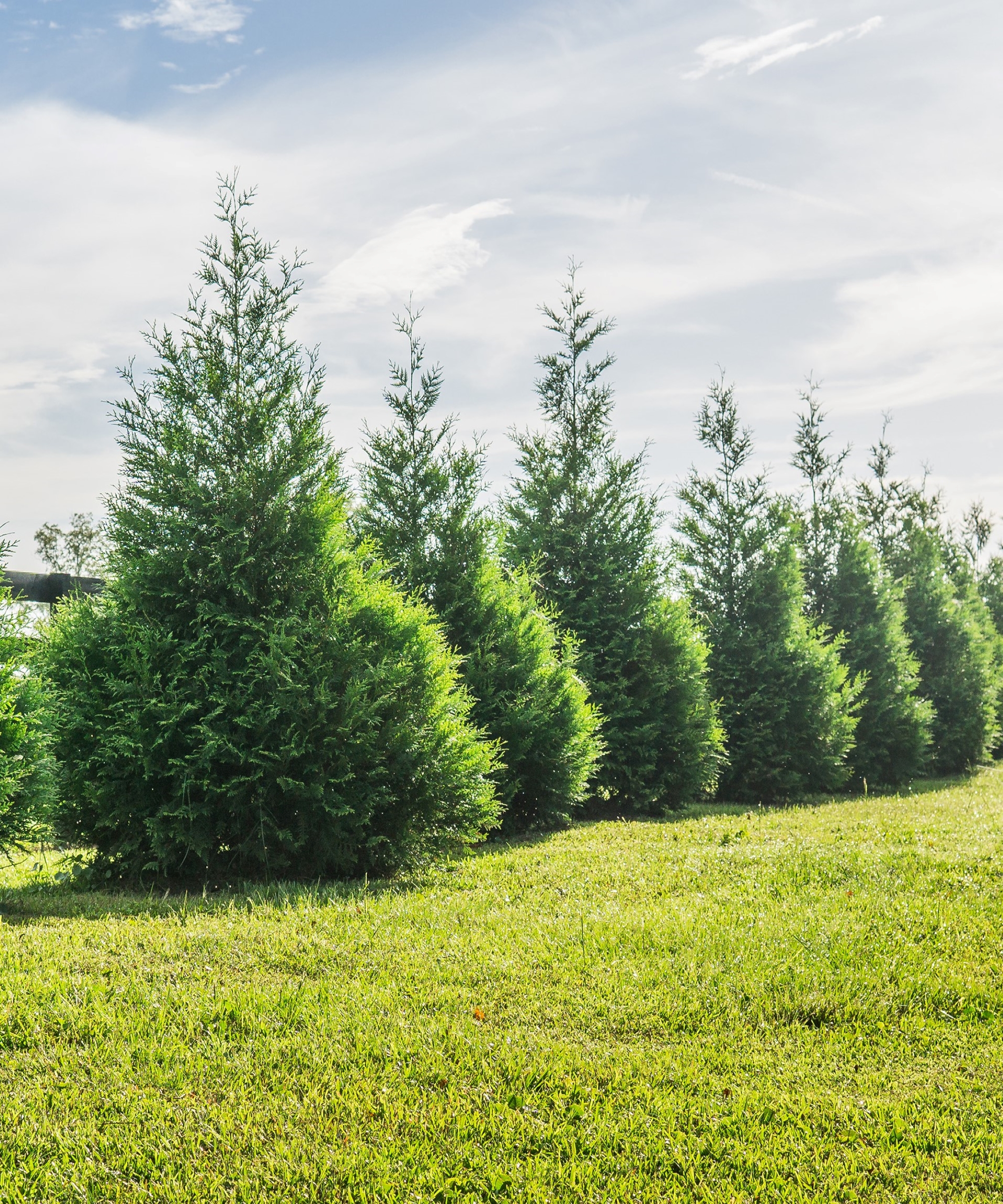
Thuja is easily the most popular tree for privacy and shade out there. Dense and evergreen, it can be shaped in any way you want, which makes one of the best hedge plants out there. Nikki Bruner, the plant expert at Perfect Plants, highly recommends these trees: 'Thuja Green Giants are iconic for their fast growth rates of up to 3-5 feet per year. Not only do they grow quickly but they are rarely bothered by pests or diseases and are drought tolerant once established.'
2. Leyland Cypress
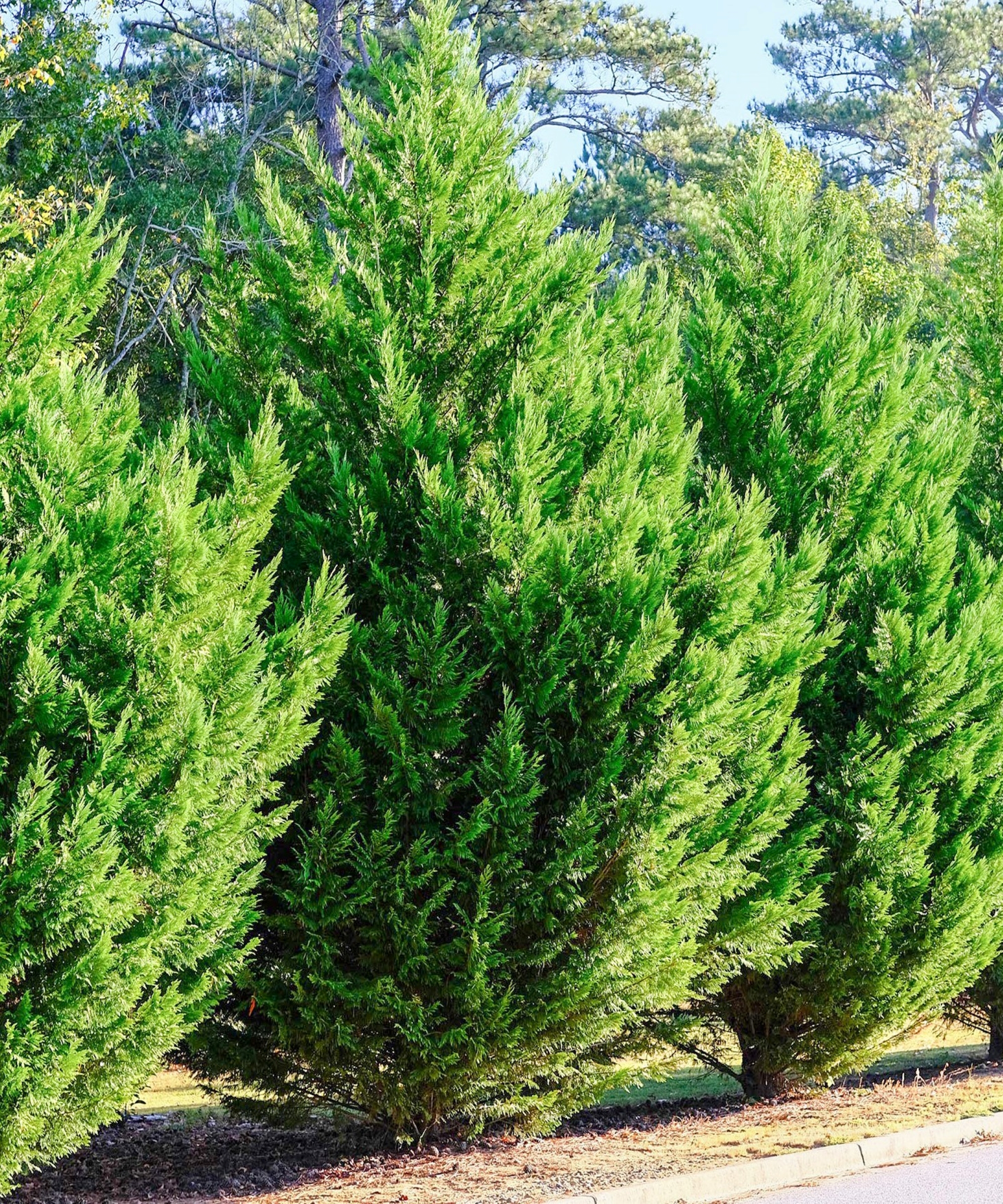
Live in a hot climate prone to drought? Cypress are a godsend for backyards in hotter climate zones. The Leyland Cypress is the variety to seek out because it grows taller than most. Bruner likes them for this reason: 'they get slightly bigger in mature size, growing up to 60 feet tall, and are more tolerant to hot weather conditions in the southern United States.'
Cypress trees will still do well in more temperate climate zones, but may struggle in areas that get a lot of rain.
3. Weeping willow
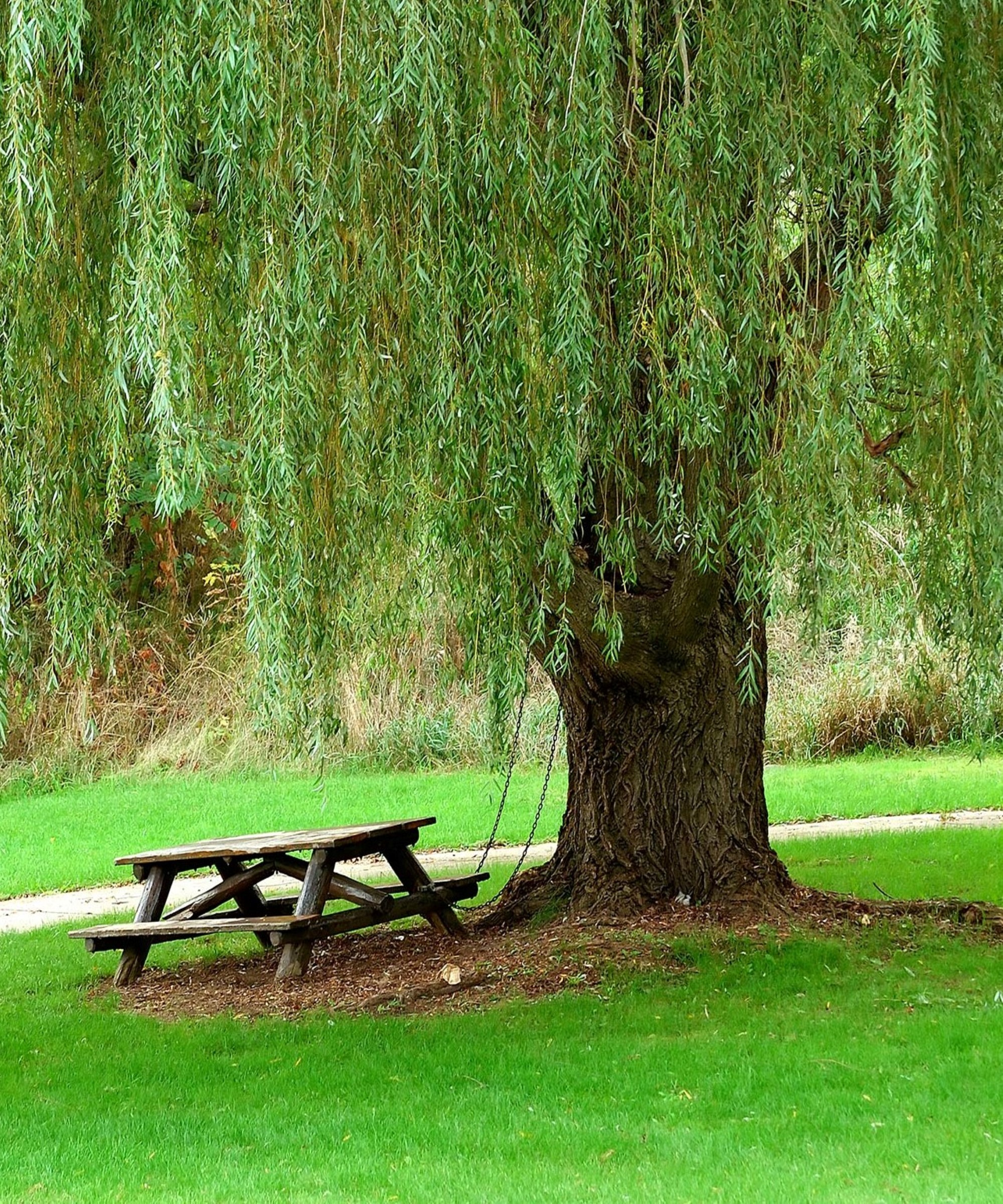
If you want to make a real statement with your front yard landscaping, then a willow tree will give you that wow factor. With their elegantly trailing branches, willows create a romantic look that simultaneously provides plenty of shade and privacy for your yard. Bruner says that 'its graceful arching branches that sway in the wind and add a touch of elegance anywhere you plant it. Weeping willows are extremely cold tolerant and easy to grow. They are also great trees to plant next to ponds or wet areas as they will soak up any extra water.'
Willows are deciduous so will lose their leaves during fall.
4. Autumn Blaze maple
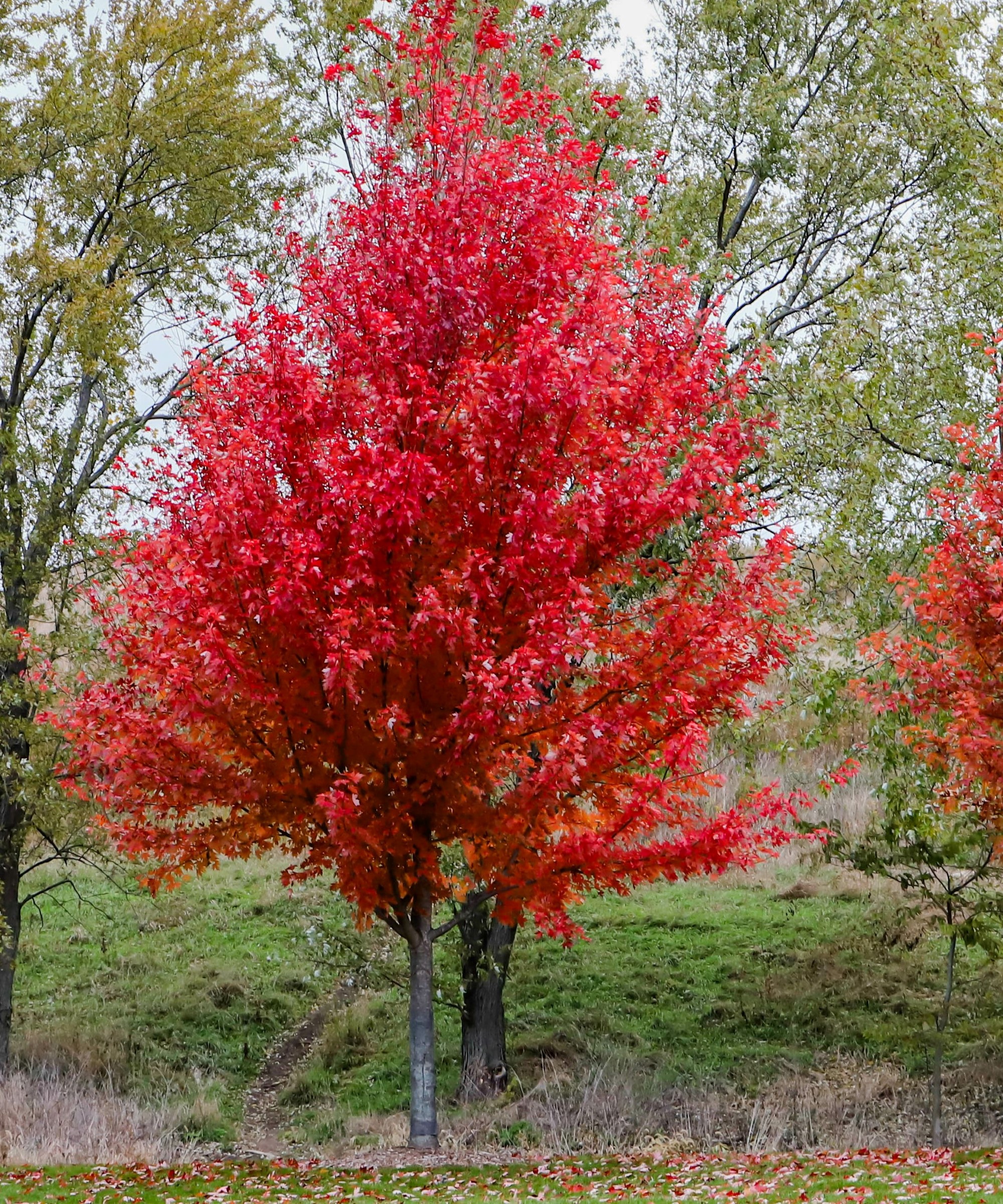
Another deciduous option that's completely worth it just for the glorious fall garden color, the maple tree is a time-tested favorite. Maple trees also are low-maintenance, with most varieties requiring minimal pruning. The Autumn Blaze is bruner's variety of choice, since it's 'a more colorful and vibrant option if your landscape is needing shades of red. Just as its name depicts, this maple tree turns brilliant shades of orangey-red during fall to put on a fiery display. Growing up to 55 feet tall and 40 feet wide, it offers a vast canopy of shade and helps absorb the hot sun.'
5. Yew
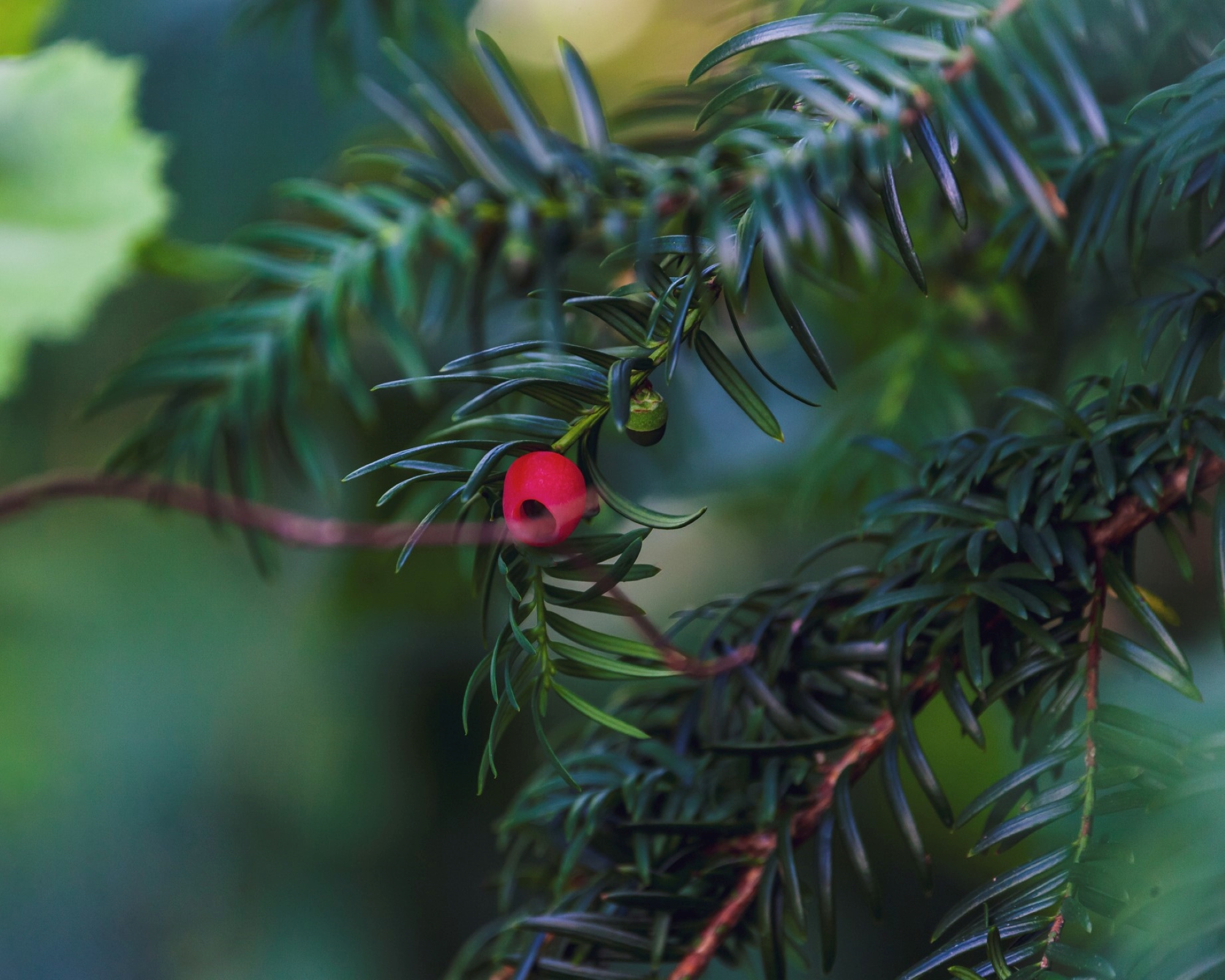
Mysterious and characterful, yew trees provide dense, dark green foliage that's evergreen, with the female trees producing colorful red berries that add a little bit of extra interest to your yard. Yews can be either shaped into dense hedges or left to grow naturally. They have a sprawling, cedar-like growing habit that many people appreciate for their unique look. Be aware, though, that yews are among plants poisonous to dogs and cats, and the berries are extremely poisonous to humans, too.
6. Holly
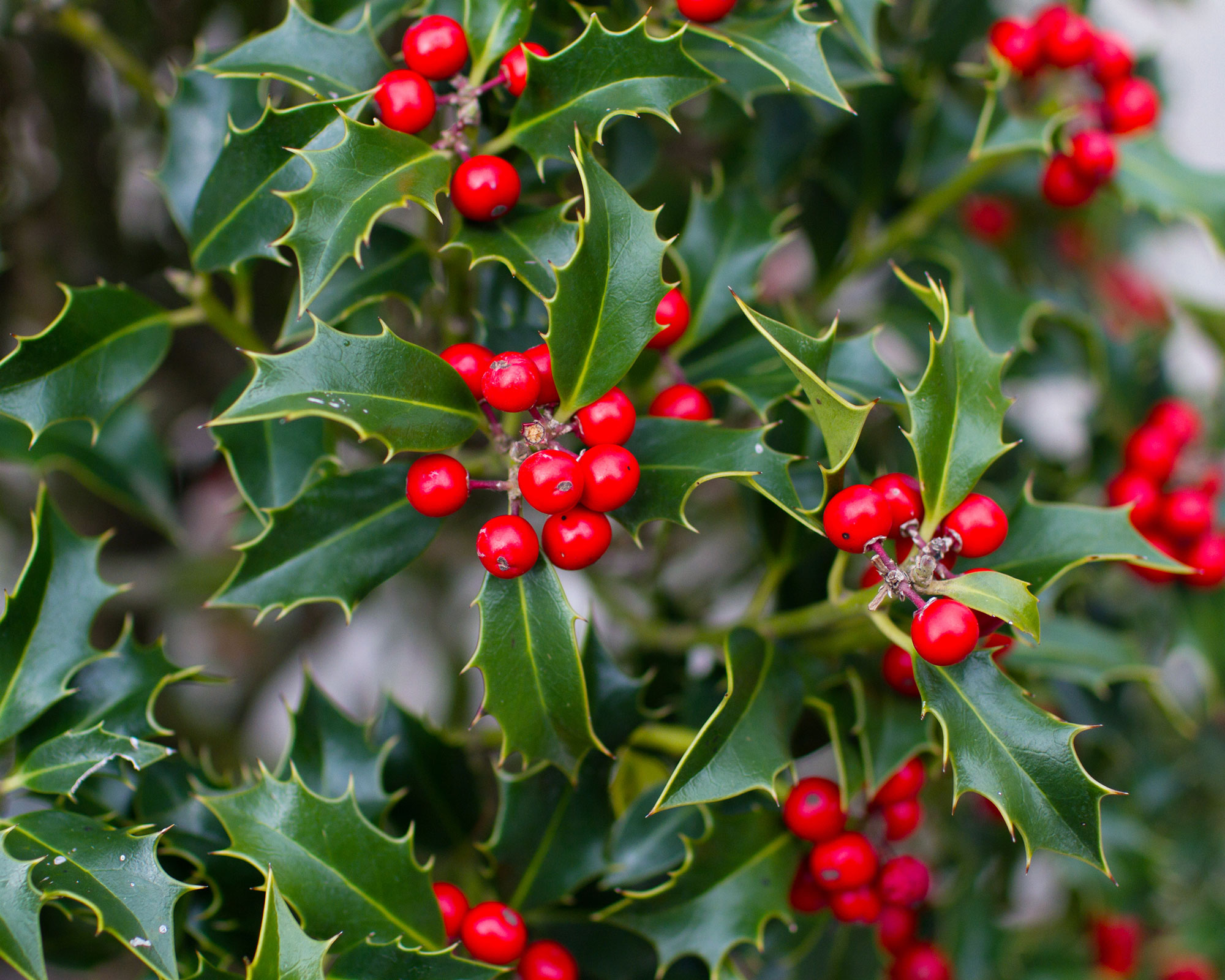
Holly is a brilliant all-rounder, providing your yard with shade, privacy, and enhanced security thanks to its spiky foliage. Holly is evergreen and is suitable for most temperate climates. Style yours as a hedge or allow the tree to grow freely.
7. Cherry
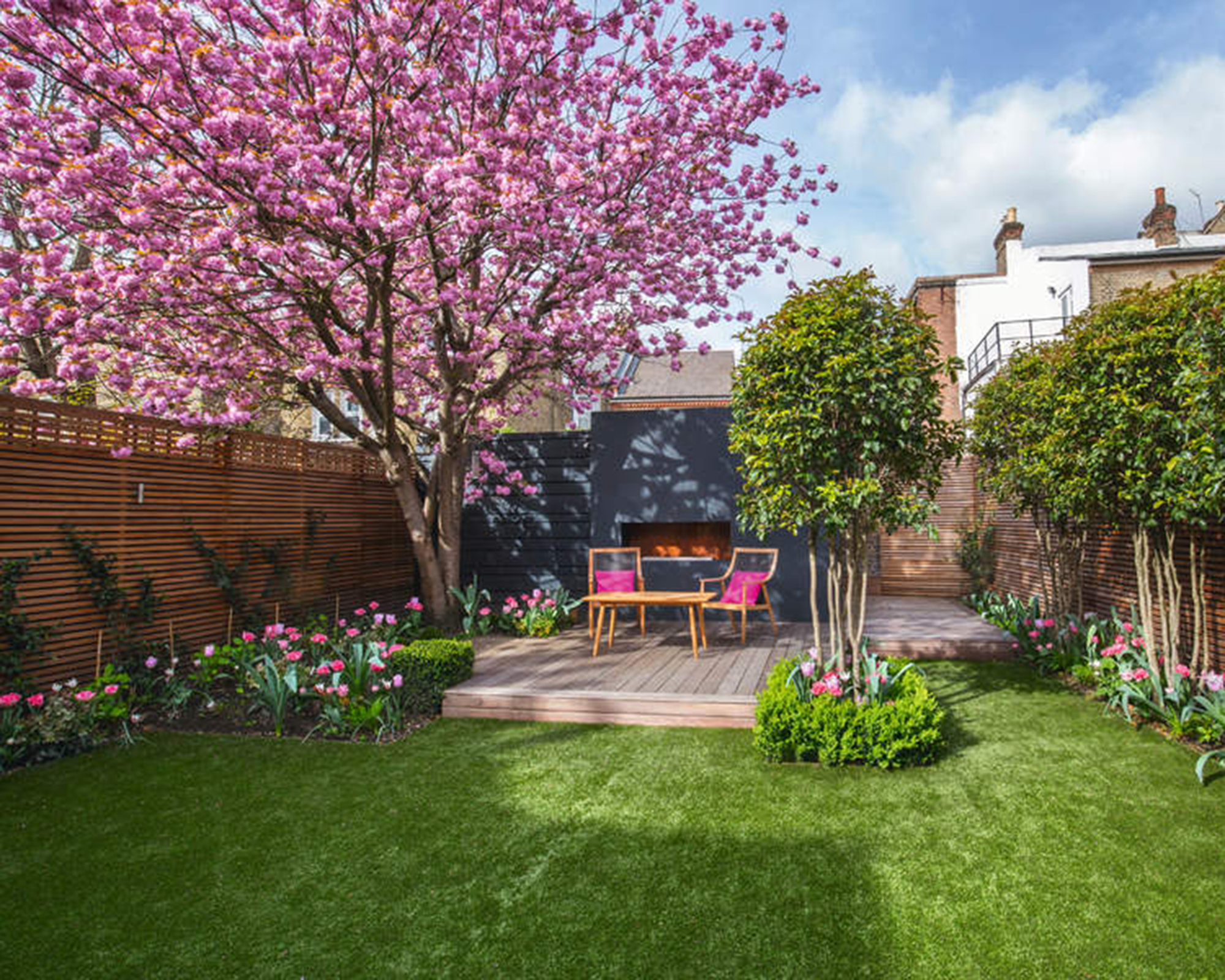
All fruit trees are great candidates for front or back yard privacy enhancement, but the cherry tree has to be the most aesthetically pleasing option. A rounded, dense canopy during the summer and a spectacular display of pink blossom in spring makes it a statement tree unlike any other. Just avoid planting them next to stock tank or above-ground pools as the flower blossom will be difficult to clean out from the water.
8. Juniper
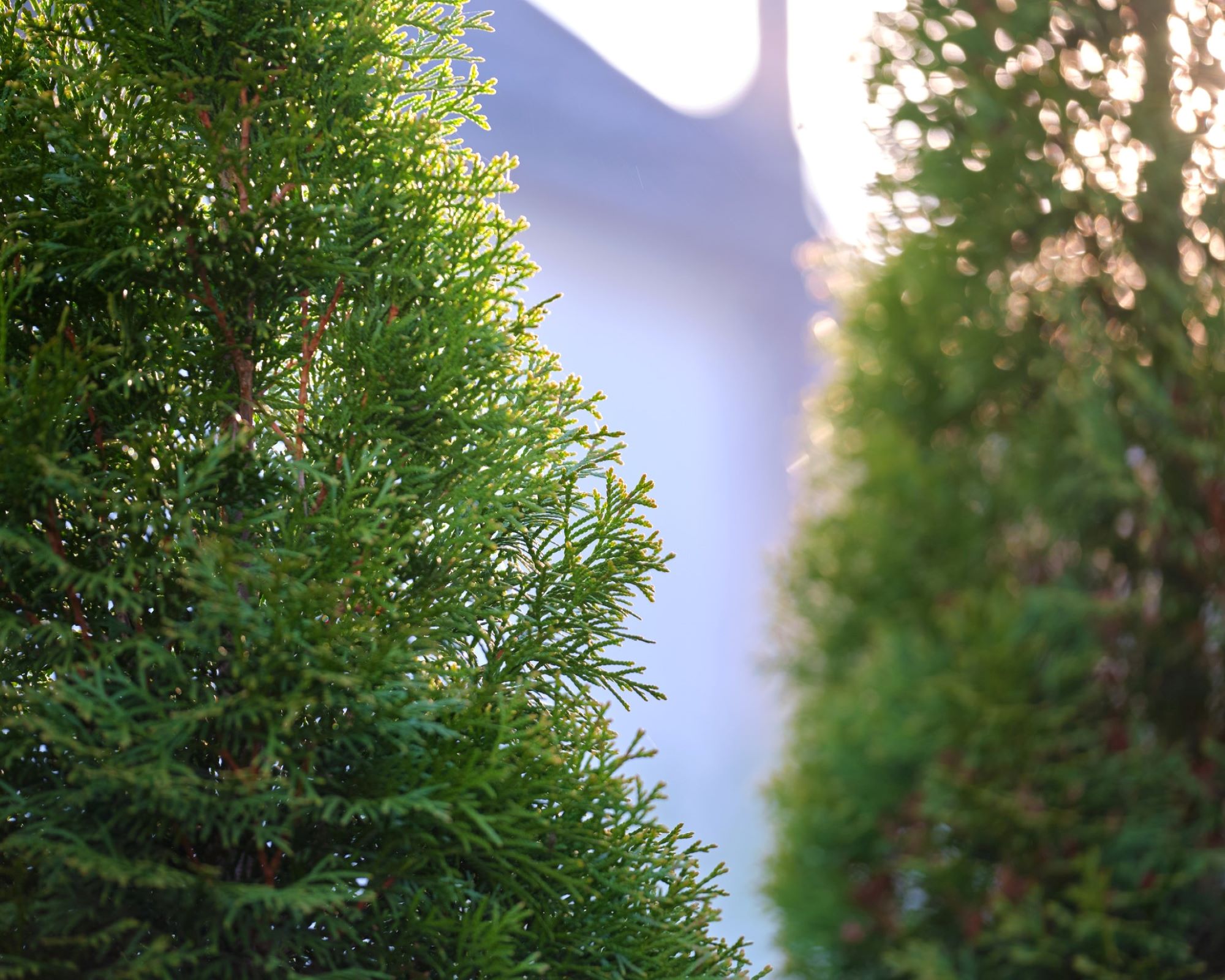
A tough, undemanding plant that is known not only for its privacy-enhancing properties but also for its air purifying potential, the juniper is a popular choice in urban yards. Junipers come in a dizzying variety of shapes, sizes, and color options, so you can really experiment with these trees to add texture and interest to your natural fence. Like other coniferous shrubs, junipers can be pruned into the shape you desire, or you can leave them to grow into their natural shape. Some junipers have a sprawling or creeping growing habit and are great for growing over walls or yard fences.
9. Cedar
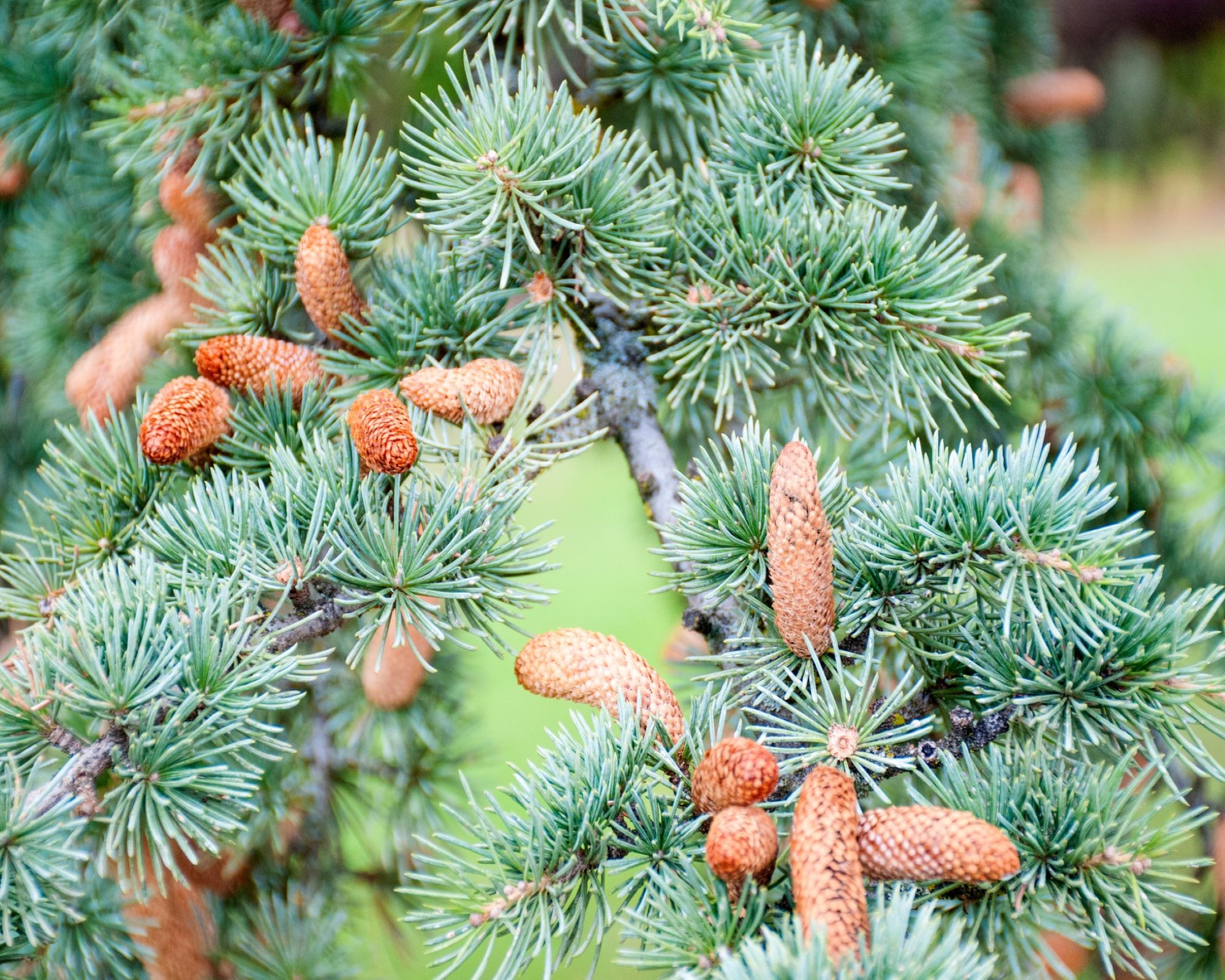
Cedar trees make for a majestic addition to a front or back yard. Atlantic cedar and red cedars will grow very, very tall over time, but if you are looking into small backyard ideas, pick a Japanese cedar. These have a compact growing habit and a naturally neat shape that will suit even tiny courtyards.
10. Acacia
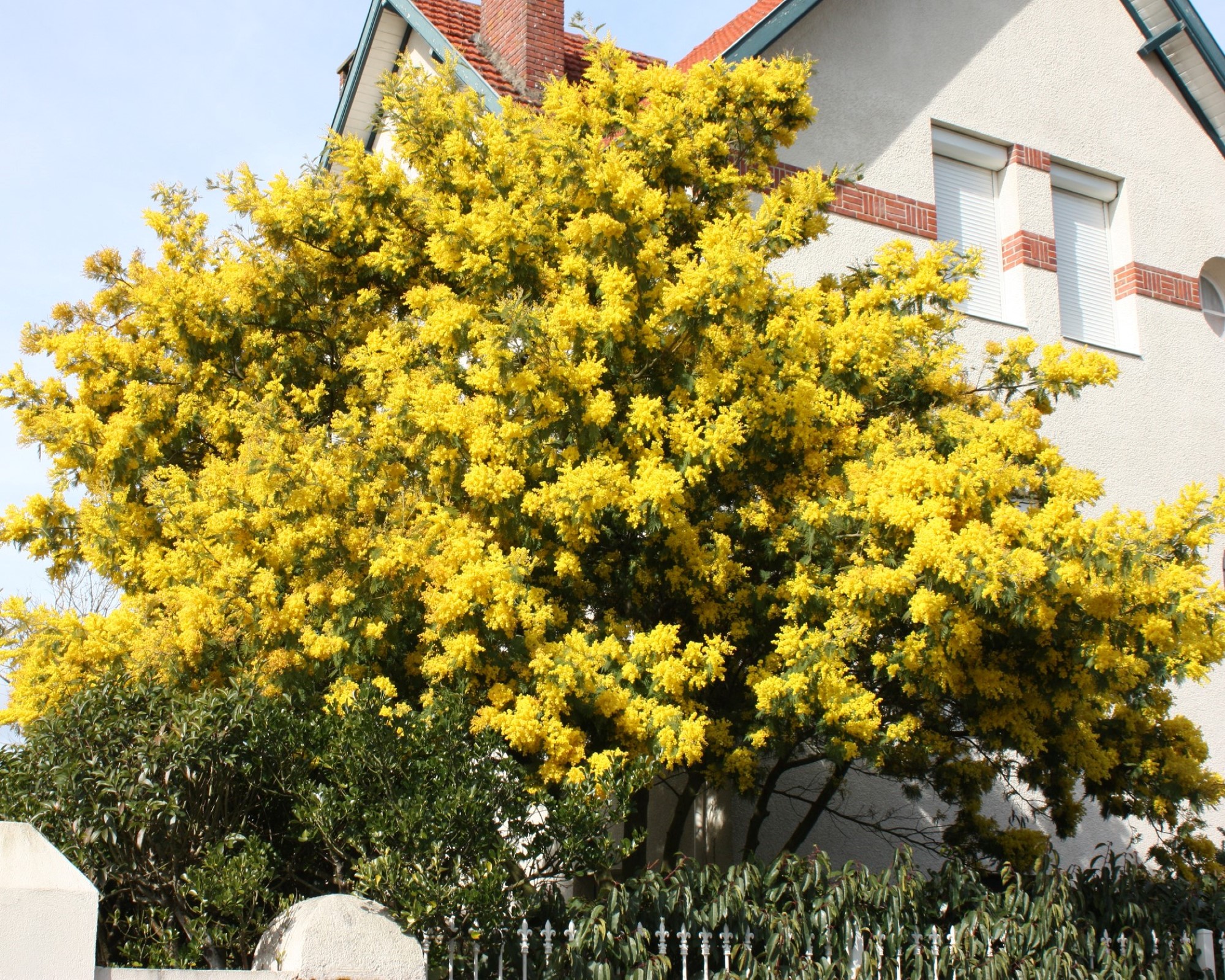
One of our all-time favorites, acacias are versatile, beautiful trees with dense, interweaved branches with tiny leaves on them. They look spectacular in a breeze, and if you choose acacia dealbata, commonly known as mimosa, you'll have clusters of fragrant, fluffy yellow flowers in early spring. A must for climates with hot, sunny summers, although it's a low-maintenance garden addition that will do well in most climate zones.
What are the best trees for privacy?
According to Bruner, 'the best trees for privacy are arborvitae with fast growth rates. This will ensure the business or homeowner gets privacy effortlessly and with easy maintenance.'
What are the best trees for shade?
'Shade trees are perfect additions to the landscape to add focal points and an escape from the hot heat (especially during summer!). Our absolute favorite shade tree is the Weeping Willow for On the other side of the shade tree spectrum is the Autumn Blaze Maple.'
'Shade trees are perfect additions to the landscape to add focal points and an escape from the hot heat (especially during summer!). Our absolute favorite shade tree is the Weeping Willow for On the other side of the shade tree spectrum is the Autumn Blaze Maple.'
What trees should I avoid?
Be mindful that some trees have invasive root systems and may eventually damage your property foundations. Avoid poplars and sycamores, and if you are planting a maple, avoid the silver maple variety.
Join our newsletter
Get small space home decor ideas, celeb inspiration, DIY tips and more, straight to your inbox!
Anna is a professional writer with many years of experience. She has a passion for contemporary home decor and gardening. She covers a range of topics, from practical advice to interior and garden design.
-
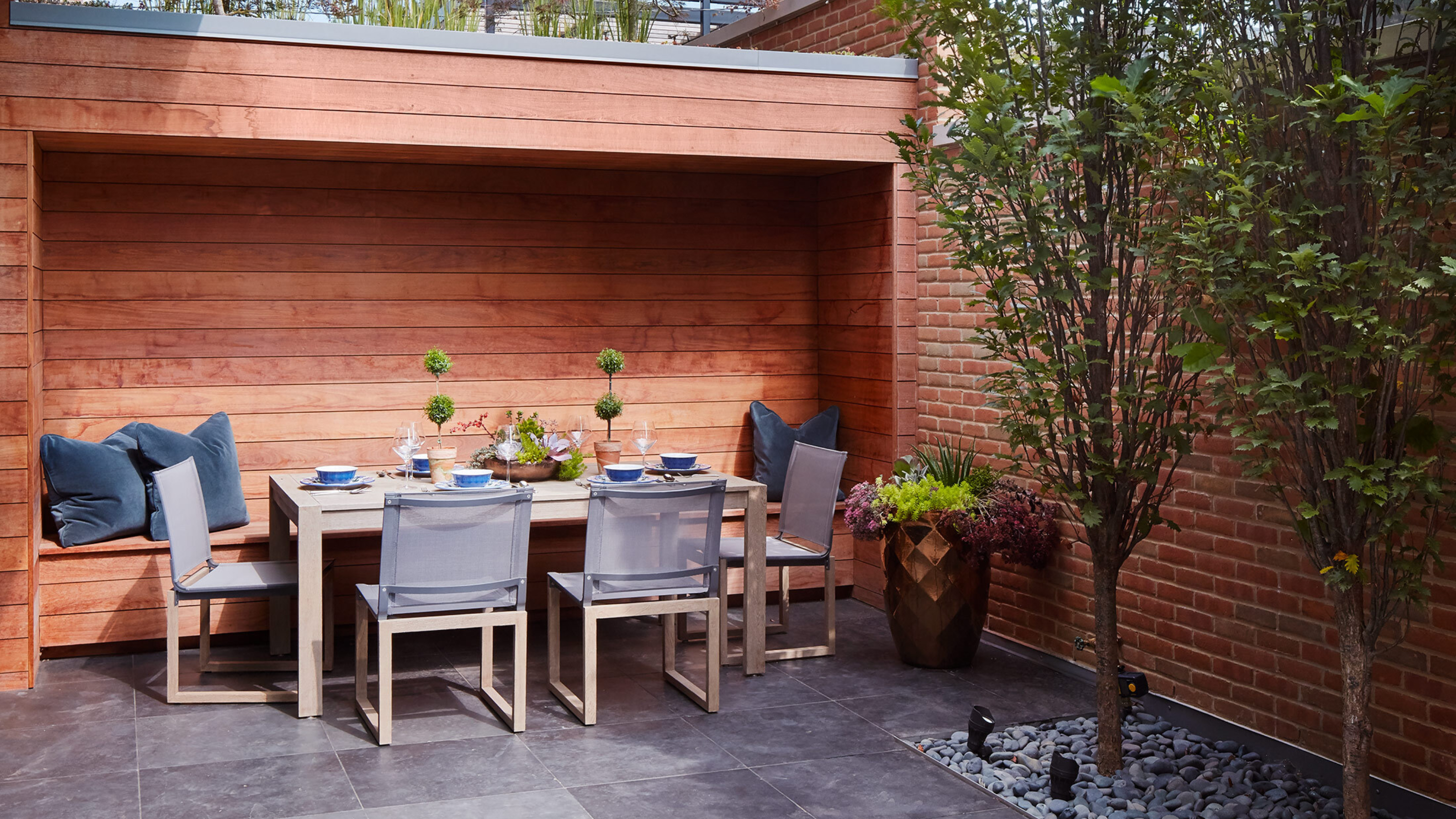 Impactful landscaping ideas for small backyards that will transform your space — 10 ideas to inspire
Impactful landscaping ideas for small backyards that will transform your space — 10 ideas to inspireFrom wood paneling and a lick of paint to planters and fire pits, our landscaping ideas for small backyards will refresh your space
By Sophie Warren-Smith
-
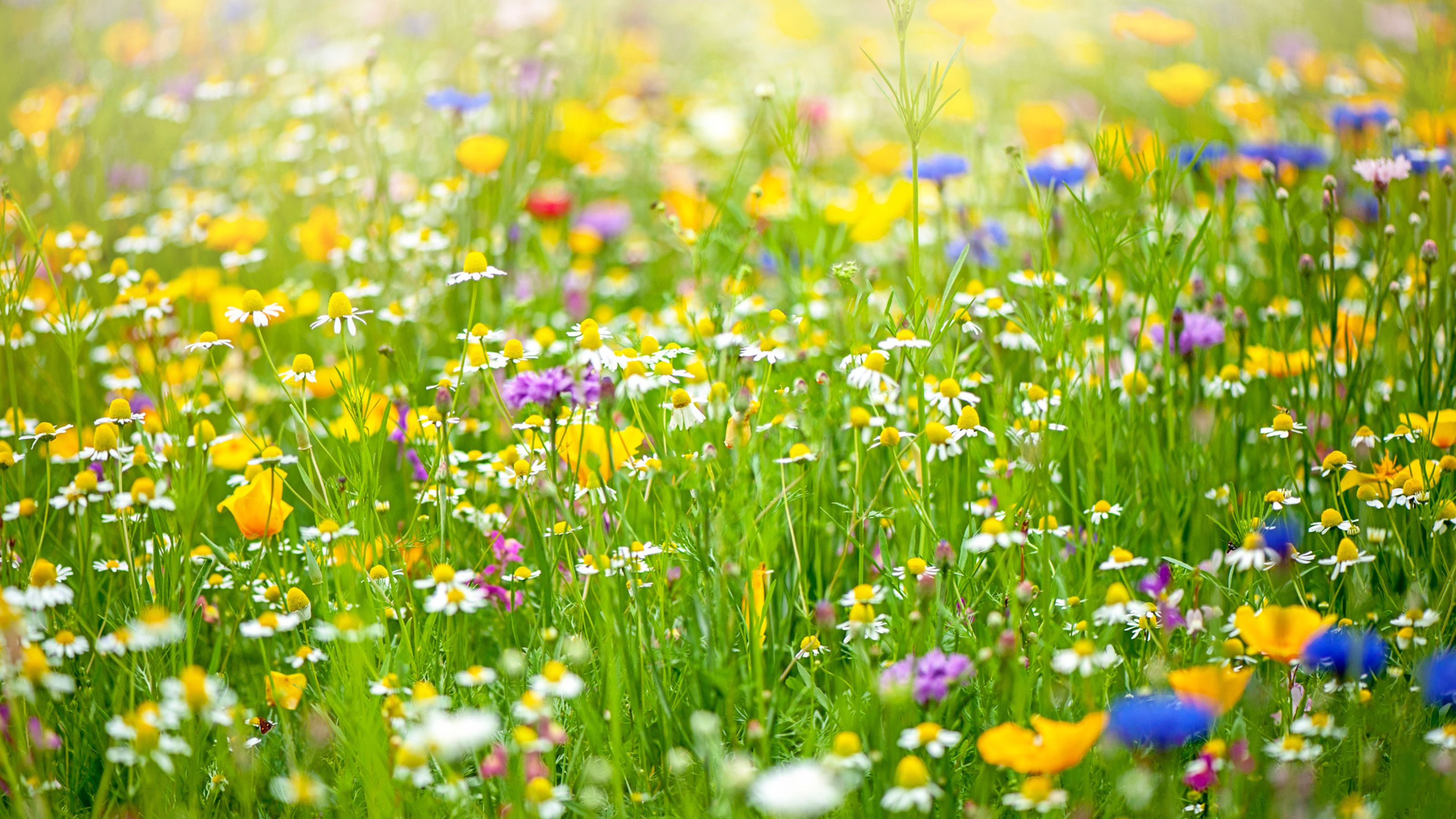 The 2024 sustainable landscaping trend is the only one worth trying, gardening pros reveal
The 2024 sustainable landscaping trend is the only one worth trying, gardening pros revealLooking for a new landscaping trend to try? We've asked designers for their top one for 2024, plus picked out essentials to help you get started
By Eve Smallman
-
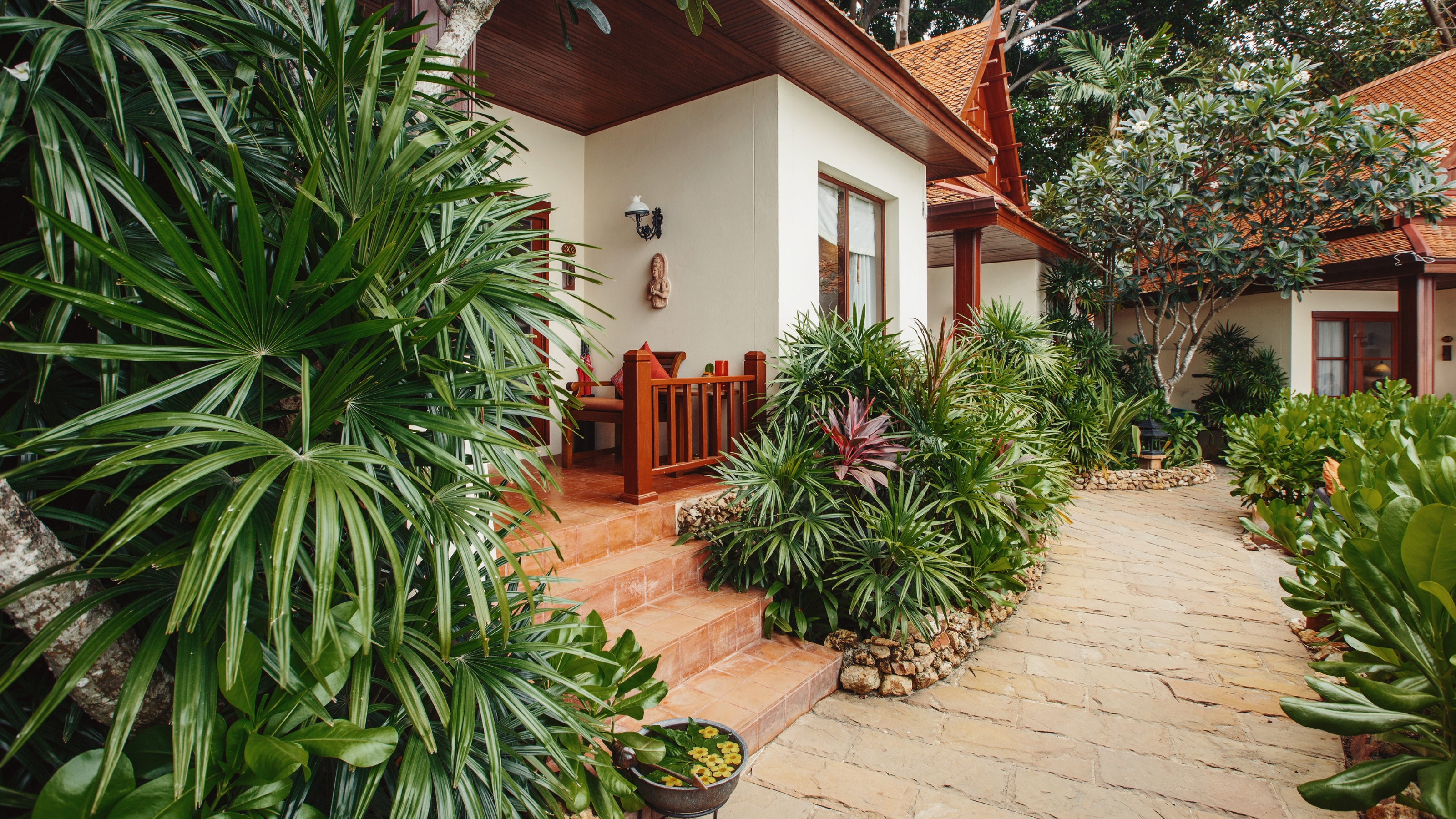 These 6 tropical landscaping ideas will give your space a resort feel
These 6 tropical landscaping ideas will give your space a resort feelOur tropical landscaping ideas will uplift your backyard with water features, lush plants, vibrant shades, and tactile materials in bright colors
By Sophie Warren-Smith
-
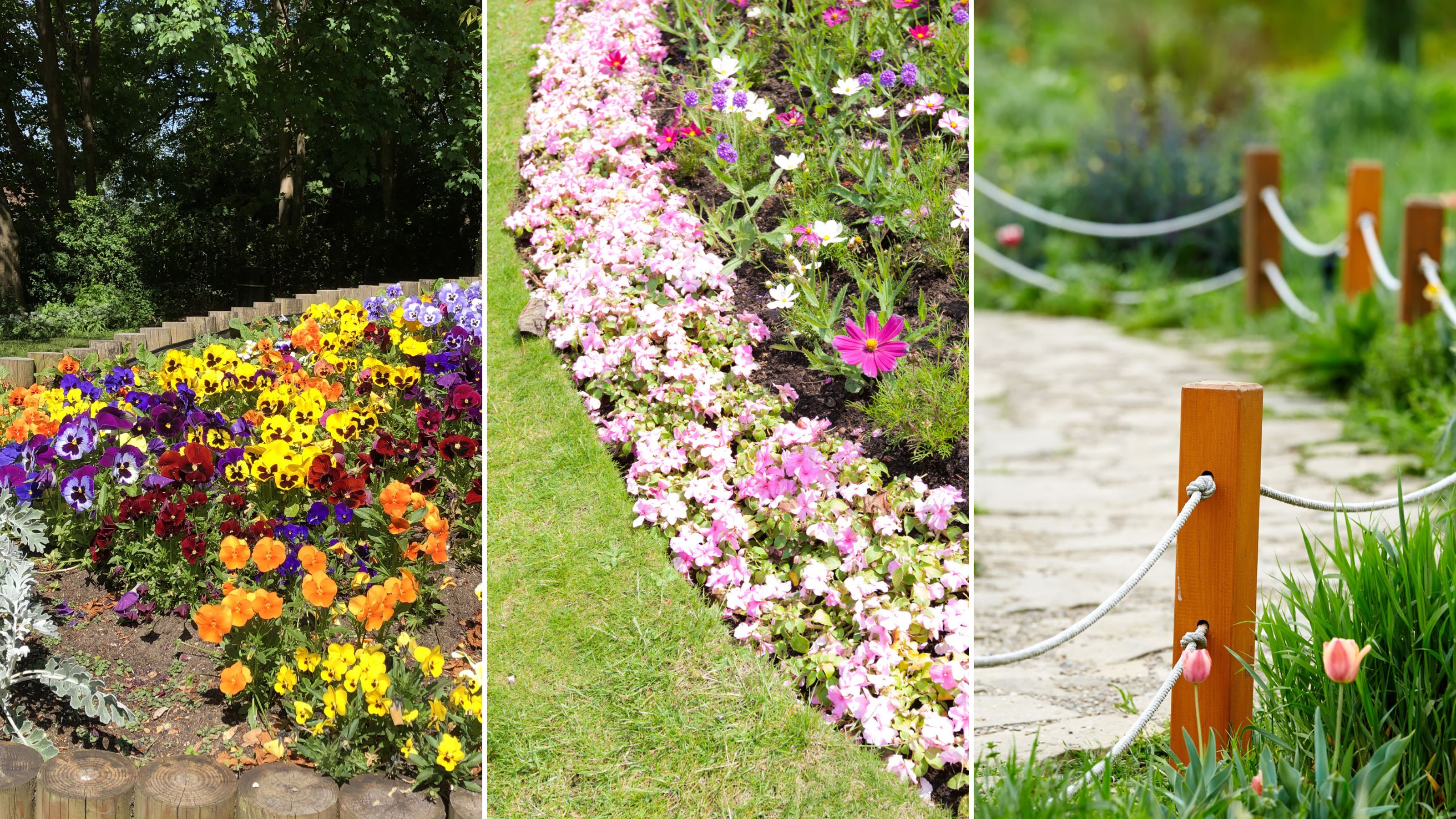 14 lawn edging ideas that will add definition and style to your backyard
14 lawn edging ideas that will add definition and style to your backyardWant to neaten up your lawn with lawn edging ideas? From fresh flowers to laidback bricks, we've scouted out materials and styles that look brilliant
By Eve Smallman
-
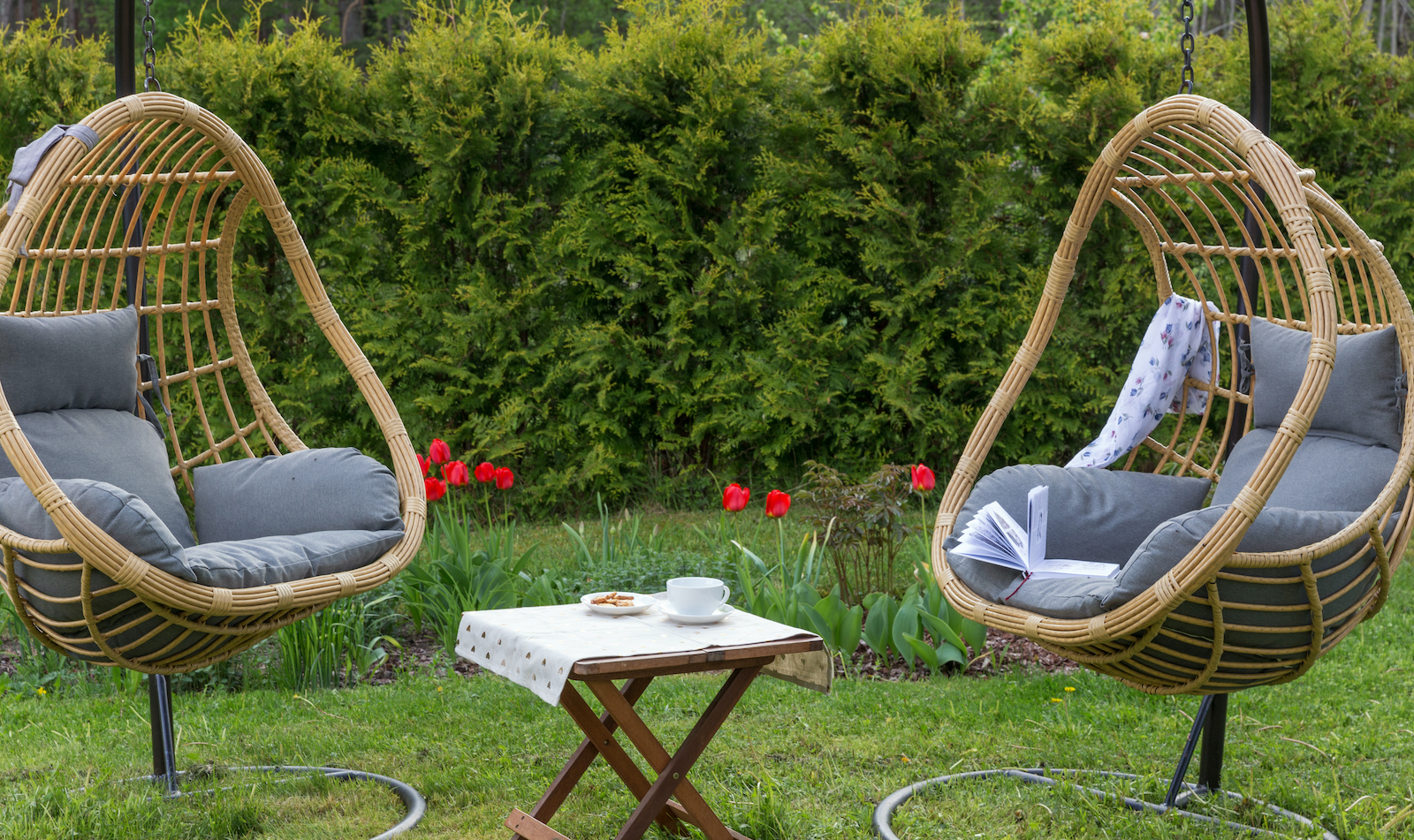 Backyard inspiration: interior designers reveal the four things you need for summer 2024, starting at just $40
Backyard inspiration: interior designers reveal the four things you need for summer 2024, starting at just $40Our edit of backyard inspiration according to interior designers will help you perfect your space for summer. Here's what the professionals are shopping this year.
By Danielle Valente
-
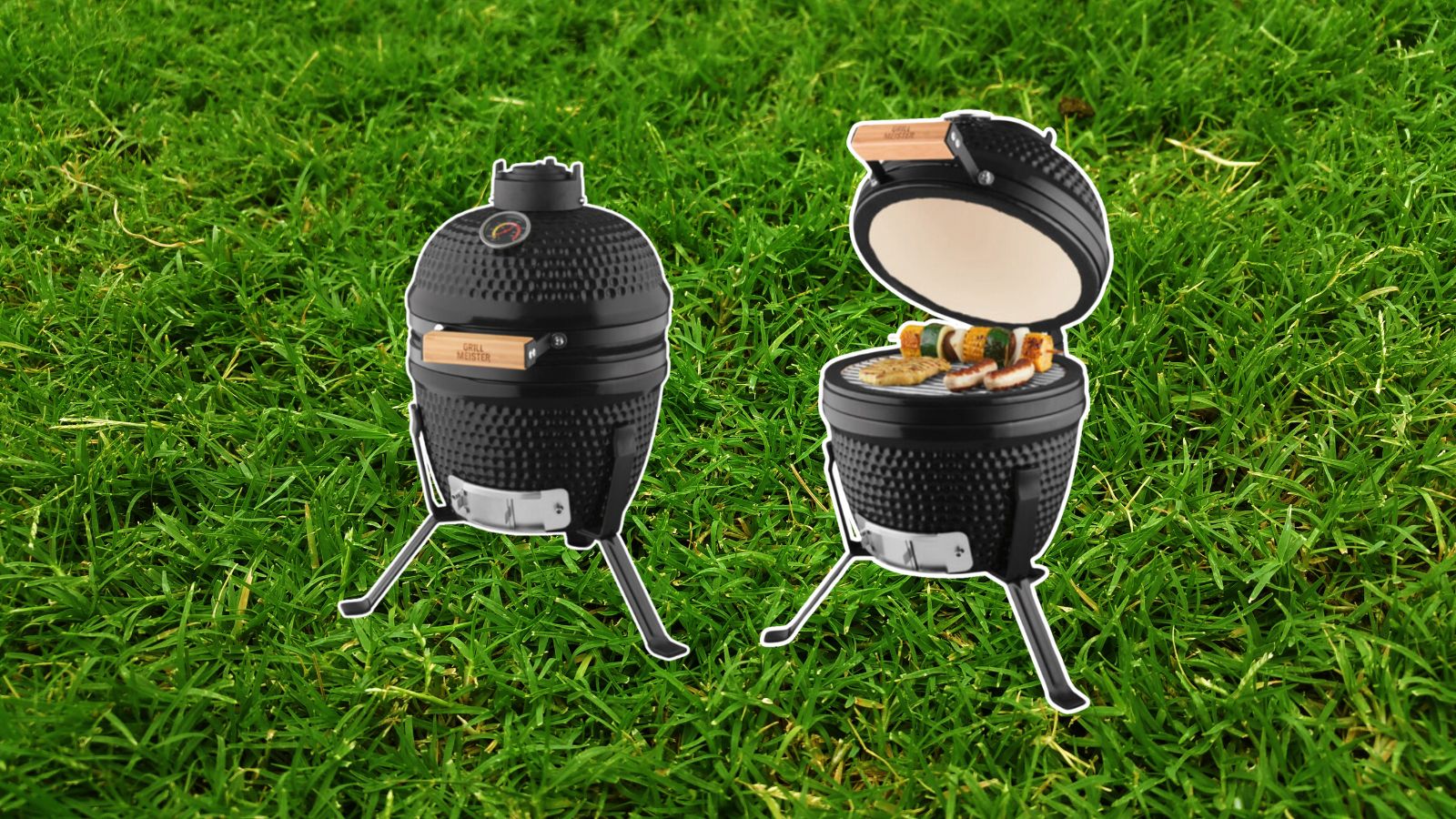 There's a kamado-style Grill Meister at Lidl for less than $100, and it's a small space steal
There's a kamado-style Grill Meister at Lidl for less than $100, and it's a small space stealThere's a kamado-style Grill Meister, Lidl's recent popular buy, that clocks in at just $75. Here's why it works so well and why you need it in your backyard
By Danielle Valente
-
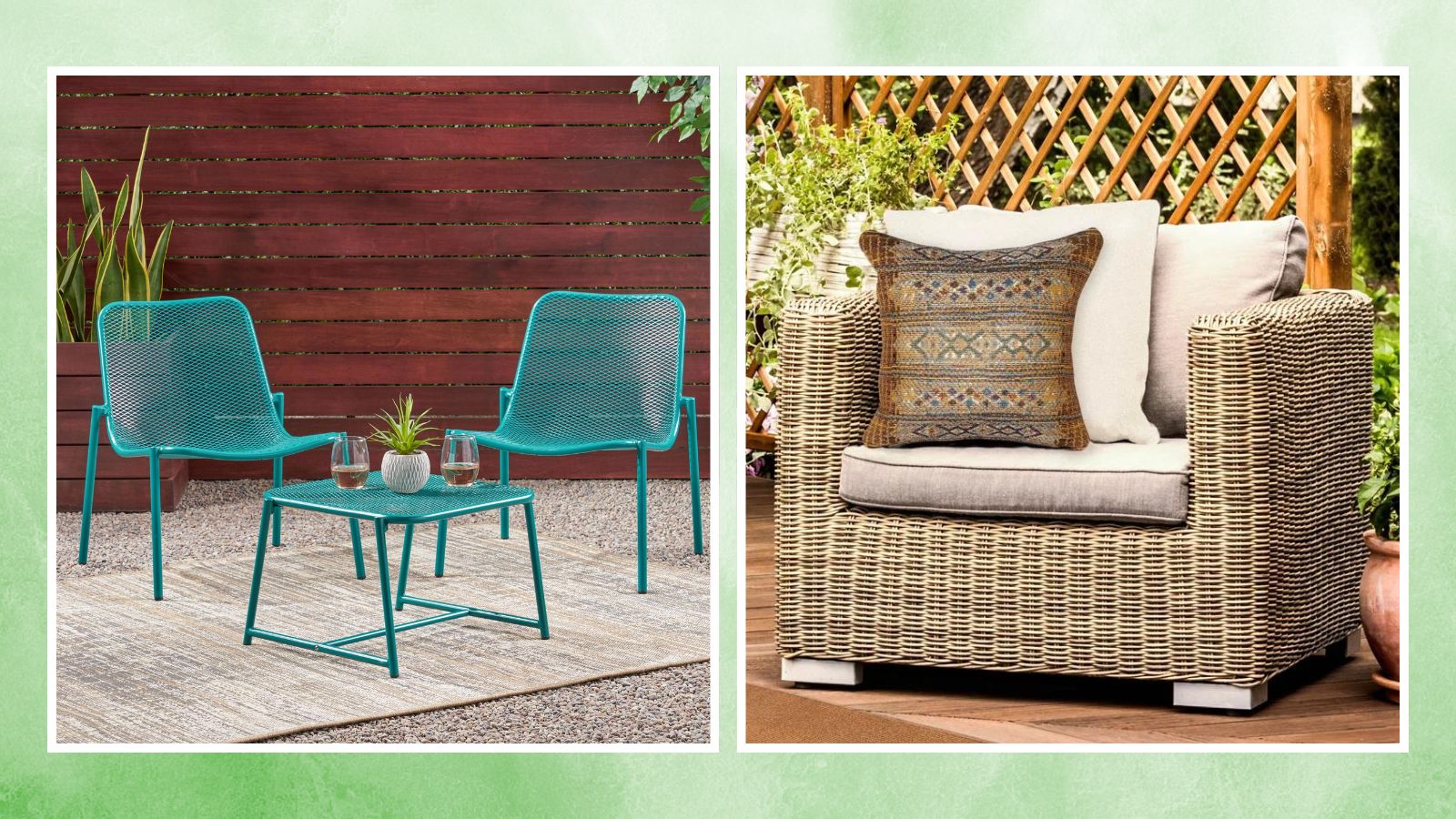 Our favorite Wayfair patio furniture picks for small spaces that make a big impact
Our favorite Wayfair patio furniture picks for small spaces that make a big impactWe scoped out Wayfair patio furniture — some of which is up to 60% off this Way Day — and found perfect fits for small spaces
By Danielle Valente
-
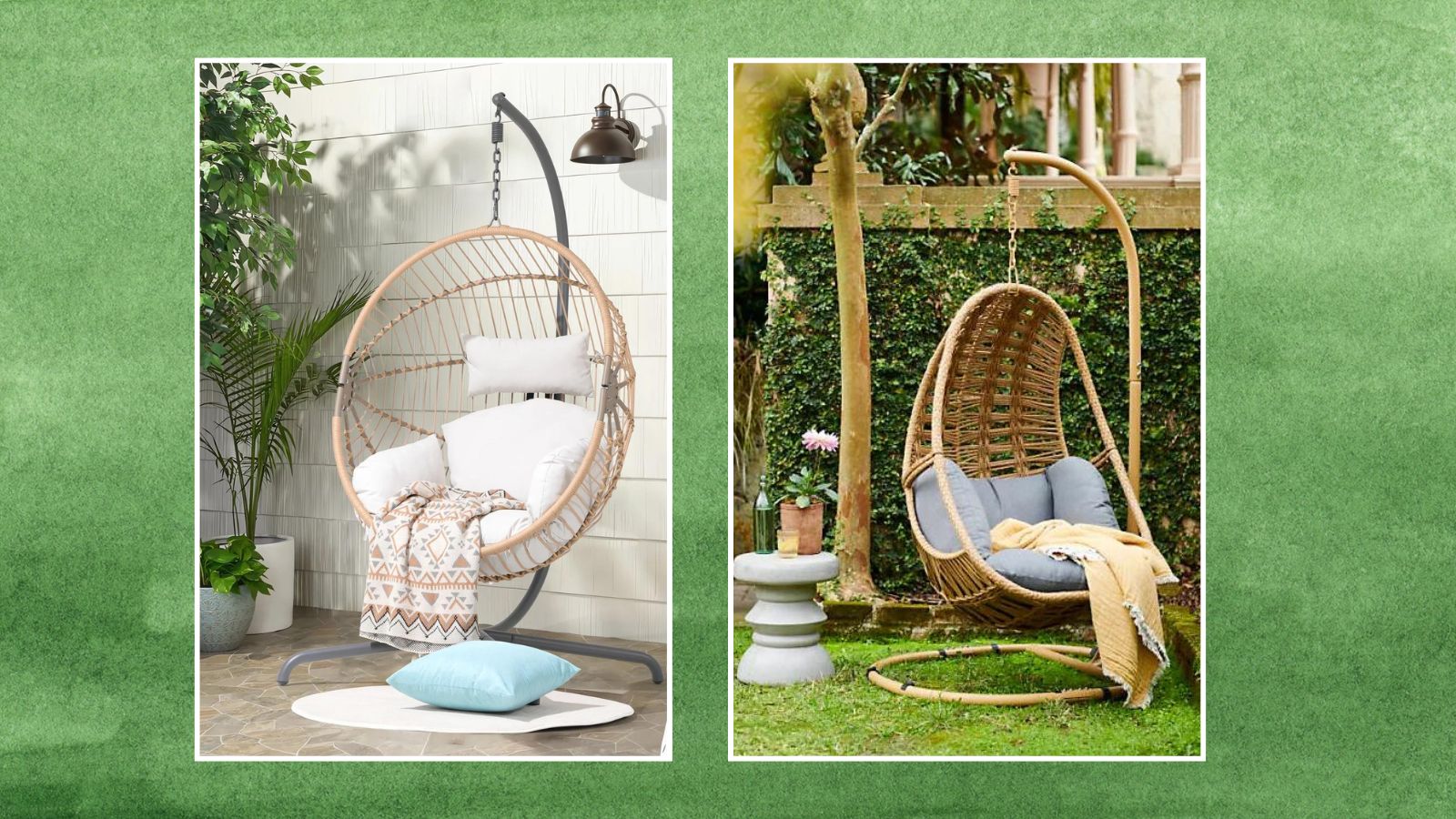 Anthropologie's outdoor egg chair is a boho delight, but we found swaps for $800+ less
Anthropologie's outdoor egg chair is a boho delight, but we found swaps for $800+ lessThe outdoor egg chair from Terrain, available at Anthropologie, is a cute boho, buy, but expensive. Check out these hanging egg basket swaps that are over $800 less
By Danielle Valente